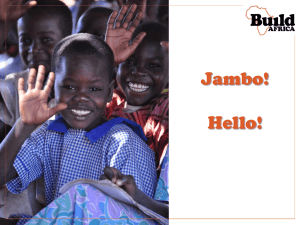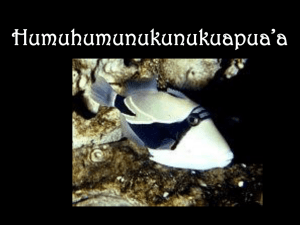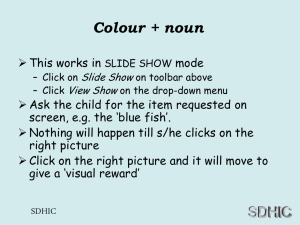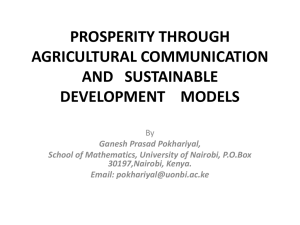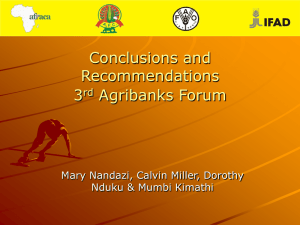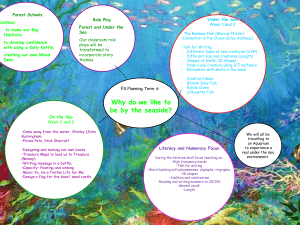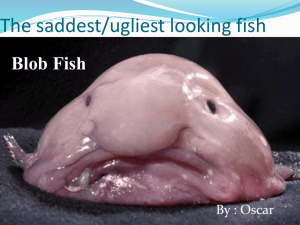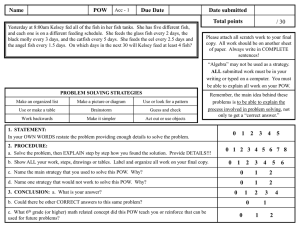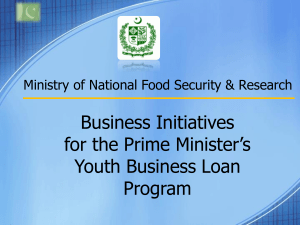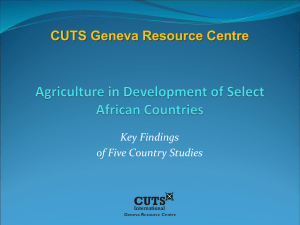ZeroFly ® Storage Bag
advertisement
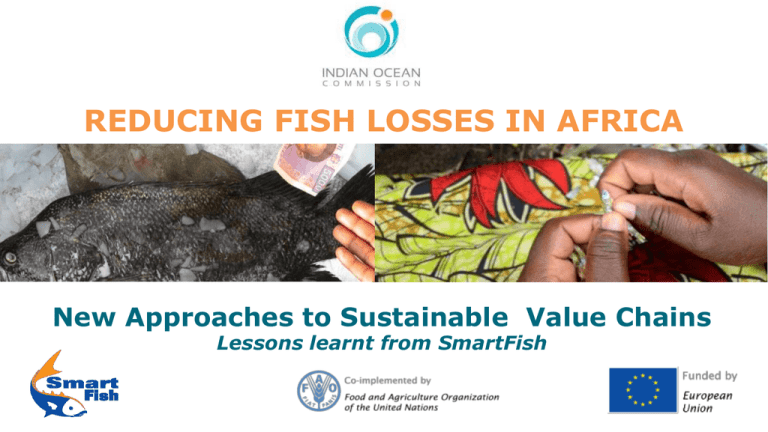
REDUCING FISH LOSSES IN AFRICA New Approaches to Sustainable Value Chains Lessons learnt from SmartFish Current scenario TOTAL PROJECT AREA > 10 Million km2 More people = more food Population 2012 - 352,000,000 2025 - 620,000,000 270 Million more mouths to feed! How much fish do we need? 2012 3 Million Mt FISH CONSUMPTION 2012 kg/capita/year 2025 5.9 Million Mt Mauritius 22 World 18.5 Africa 9.5 Malawi Zambia 5 6 • Production does not meet demand • Demand is expected to increase • We need: - reduce food/fish losses - more efficient value chains From the net to the plate: The SmartFish 3-steps Approach STEP 1: Understanding value chains: STEP 2 Reducing fish losses: ● Training on fish handling and quality ● Awareness raising (Clean Fish better life campaign) ● Cold chain development ● Training on making insulated boxes STEP 3 Processing and value addition: ● Sun-drying racks for small pelagics ● Smoking and cooking facilities ● Processing and packaging of high value octopus A Partner in Sustainable Agriculture & Rural Development European company founded in 1957, specialising in diseasecontrol products. Structured around a humanitarian entrepreneurship business model where doing good is good business. Dedicated to alleviating devastating global health challenges faced by people at the base of the pyramid. United Nations Millennium Development Goals (MDGs) drive business objectives and provide impetus for continued focus on creating a healthier planet. Strive to develop innovative disease-control textiles, which when implemented with our dedicated partners, contribute to the realisation of the MDGs. Novel Products for Sustainable Agriculture & Rural Development Vestergaard’s ZeroFly® branded products target both farmers and countries: Attractive tools for farmers, governments, aid agencies, the UN & the private sector. Promoting prosperity & food security: Protection that removes need for repeat intervention & provides a reduced residue defence against insect pests for livestock and crop protection throughout the whole value chain. ZeroFly® contributes to MDG 1 and MDG 7 & Beyond! (Post 2015 Agenda) ZeroFly® Livestock is an advanced insecticide-incorporated screen that helps farmers protect their livestock from flies in a more sustained and effective way ZeroFly® Storage Bag is the first available insecticide-incorporated storage bag for preventing damaging pest infestations Concept: Target Post Harvest Losses ZeroFly® Storage Bag is a woven polypropylene bag developed for postharvest storage • First tool of its kind: – Pyrethroid incorporated into polypropylene yarns – Recipe developed through 10yrs R&D – Min. 2yrs shelf life & Min. 2yrs lifetime • Safety proven: Toxicology & utilising anti-slip weave – Approved by WHO & FAO • Minimal behaviour change required by user • MRLs below CODEX/ International requirements; under high temperature, pressure & humid/ wet conditions Summary of ZeroFly® Storage Bag Proven protection of commodities & seeds Proven physical durability/ lifetime Any commodity, any size any colour Clear branding, high quality Laboratory bioefficacy proven Field Studies in 13 countries Data for up to 6 months/ 13 month (semi/field) 13 Improving efficiency of the mud crab value chain in Madagascar What we did: Introduction of innovative practices ● 8 basic innovation techniques developed and disseminated Map from hirely ● 20 hands-on trainings and demonstrative events ● A multimedia set of materials produced and disseminated ● One awareness outreach event ● Marketing support Our low-cost innovations Reduction of losses at collection stage ● Replacement of current hook tool with … Improved catch system: use of “Balance” ● Cost - USD 1.2 ● Increased revenue - USD 7 per week Reduction of losses at storage level Introduction of stackable boxes ●Cost - USD 20 each ●Increased revenue - USD 60 per trip Barriers to Scale & Impact and Challenging Trading Environments How to bring more relevant, innovative, cost effective, environmentally sound, scalable & sustainable Areas for enabling policies: Registration Trade policies Import duties/ taxes Incentives Distribution chains Knowledge building Storage solutions are needed at three stages, namely, farmers, traders and the government or public sector levels…. The new initiatives like insecticides impregnated/incorporated HDPE or PP woven bags for the storage of seeds or grains will also be encouraged based on the efficacy and safety of the product as these are useful at all three stages…. Acknowledgements & Thanks • • World Food Programme: Study in Burkina Faso & Uganda SmartFish FAO: Study in Uganda to extend usage protecting fish value chains • Ghana: Vestergaard-NMIMR Centre for Vector Control Research African Regional Postgraduate Program in Insect Science, Prof. Owusu Nigeria: Nigerian Stored Products Research Institute, Prof. Williams Senegal: Interdisciplinary Team for Phytosanitary Experiments of Min. of Agriculture, Dr. Cissé Ethiopia: Oromia Agricultural Research Institute, Dr. Teshome Bogale Kenya: Kenya Agricultural Research Institute, Dr. Kimondo Kenya Seeds Company, Mr. Eric Tegei Zambia: Zambia Agricultural Research Institute: Dr. Gilson Chipabika India: International Institute of Biotechnology and Toxicology (IIBAT) USA: USDA-ARS, Manhattan, Dr. Dowell Eurofins Agroscience Services Inc. UK: Natural Resources Institute, Dr. Arnold • • • • • • • • 20 Acknowledgements & Thanks • • World Food Programme: Study in Burkina Faso & Uganda SmartFish FAO: Study in Uganda to extend usage protecting fish value chains • Ghana: Vestergaard-NMIMR Centre for Vector Control Research African Regional Postgraduate Program in Insect Science, Prof. Owusu Nigeria: Nigerian Stored Products Research Institute, Prof. Williams Senegal: Interdisciplinary Team for Phytosanitary Experiments of Min. of Agriculture, Dr. Cissé Ethiopia: Oromia Agricultural Research Institute, Dr. Teshome Bogale Kenya: Kenya Agricultural Research Institute, Dr. Kimondo Kenya Seeds Company, Mr. Eric Tegei Zambia: Zambia Agricultural Research Institute: Dr. Gilson Chipabika India: International Institute of Biotechnology and Toxicology (IIBAT) USA: USDA-ARS, Manhattan, Dr. Dowell Eurofins Agroscience Services Inc. UK: Natural Resources Institute, Dr. Arnold • • • • • • • • 21

